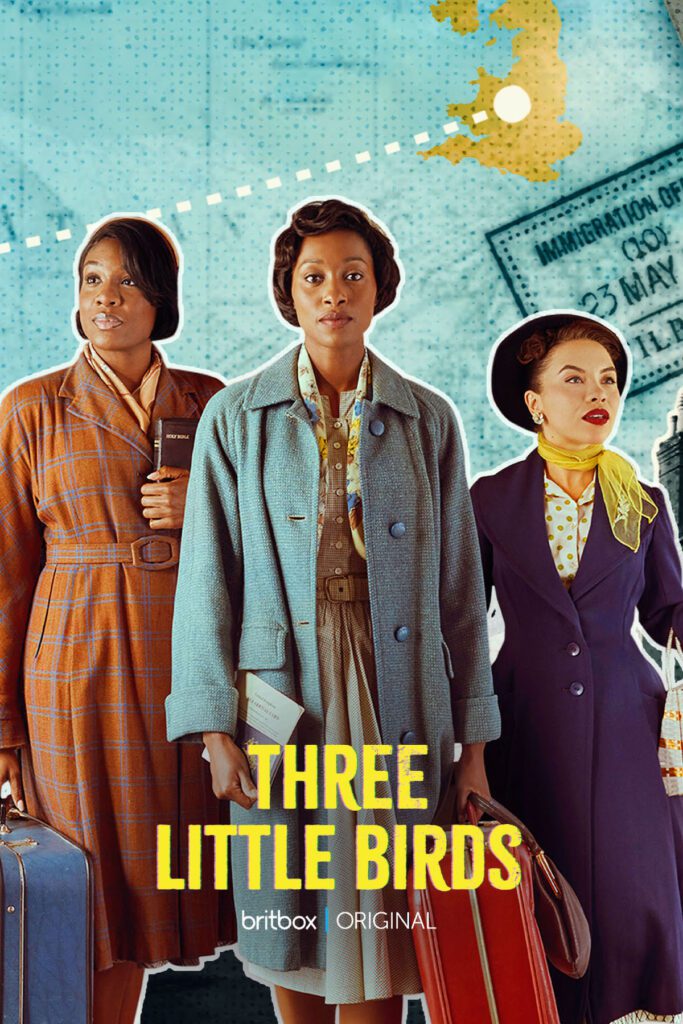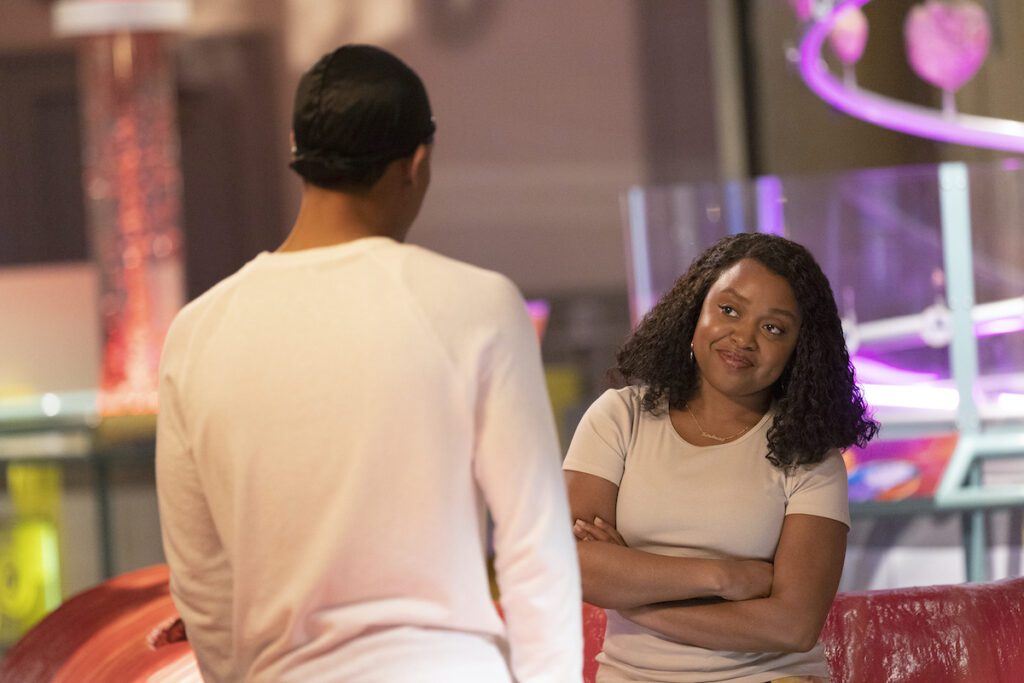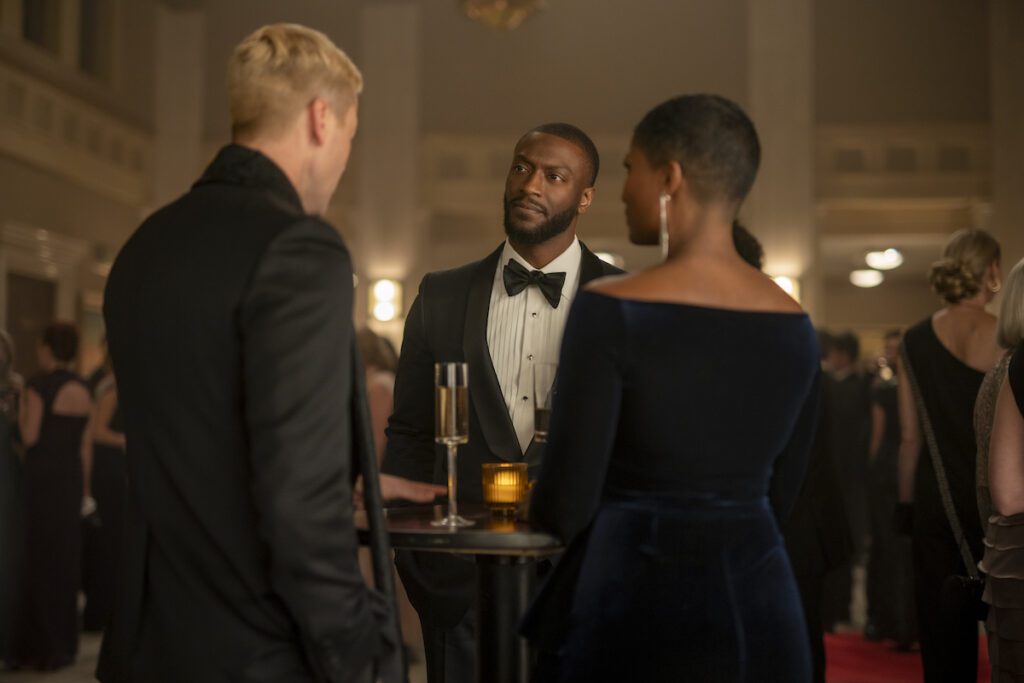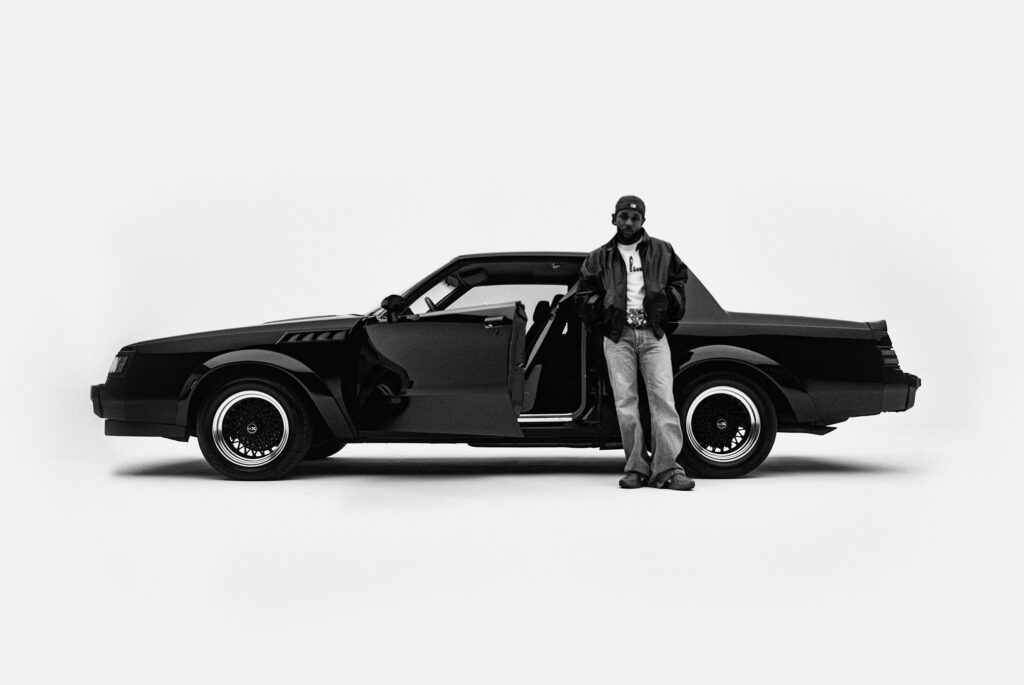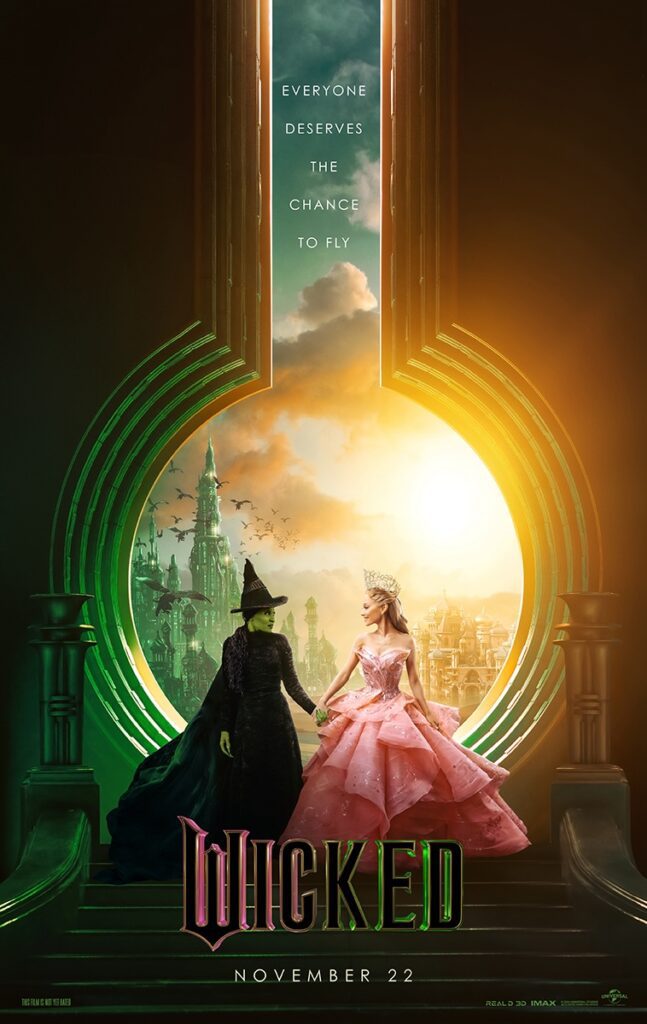Have you watched Three Little Birds yet?
Source: Courtesy / BritBox
Three Little Birds narrates the adventures of gregarious sisters Leah and Chantrelle, who hail from the St Anne’s district of Jamaica, and their virtuous, bible-loving acquaintance Hosanna, as they board a ship heading for a new life in Great Britain. Written by Sir Lenny Henry, this life-affirming six-part drama is inspired by Henry’s mother’s stories of leaving Jamaica in the 1950’s for Great Britain, which became her lifelong home and where she raised her family.
Global Grind’s Sr. Content Director Janeé Bolden spoke with Saffron Coomber who stars as Chantrelle and Yazmin Belo, who plays Hosanna ahead of the series’ US premiere. Coomber spoke to us about her portrayal of Chantrelle, who has big Hollywood dreams of becoming an entertainer like Dorothy Dandridge.
“She’s just such a delight,” Coomber told Globala Grind. “I think the heartbreaking thing is that I’m able to live the dream that she wanted. Because I am born now, I’m afforded privileges that she wasn’t. There’s no reason why Chantrelle couldn’t have done what she wanted to do, apart from the world she was born into and the time, but what was so joyous about her, particularly in the beginning when you meet her, is her unbridled positivity, self-assurance that this was gonna happen. ‘Do you know who I am? I am Chantrelle.’ She doesn’t have my insecurities, self-doubt. That kind of invigoration, inspiration and absolute decadent kind of consummation that she has towards like Shakespeare and the movies and Mae West and all of these starlets. It was that almost childlike joy. It was such a wonderful playing experience.”
Alternatively, Belo’s character Hosanna is the furthest thing from free-spirited, but as the story of Three Little Birds unfolds we find her to be much more complex than the strictly religious character we meet at the outset of the series.
“She doesn’t really know what’s going on until it’s there,” Belo told Global Grind. “I think she comes over to such drastic changes and coming from such a sheltered community, being very much middle class in her own way, because of the fact that she’s a pastor’s daughter, not knowing about the financial insecurities that her father had, there was refinements that she couldn’t quite shift until she needed to, so her poisedness and her not really wanting to talk to anyone until she was spoken to, but you dare not say anything about Christ, because she will let you know that ‘God loves you.’ There was all of that going on, but actually her humanitarianism that lived within her meant that anyone she came across who was in need, her aid was there and that just comes from the relationship that she has with her paternal and heavenly Father. It was her obligation and that was sweet and I grew up with women like that. So trying to find that and trying to release her, because it was all really there in the writing, but trying to pull her right at the correct times and making sure I’m not doing too much in Episode 3 because in Episode 4 there’s a shift. The opening scenes where for the first time in her life, Hosanna’s getting two men to fight over her, I know how that feels, but Hosanna was taken aback because all the brothers that I’ve only ever had have been in the church and it’s been very cordial because they dare not step to me because my Dad would be on them, so she was experiencing a lot of new things for the first time and with that came resilience and the character shift and development that needed to happen at the right time.”
Coomber and Belo also opened up about less pleasant scenes in Three Little Birds where their characters were subjected to racism and sexual harassment.
“I had a scene with Rochelle, who plays the character of Leah, where we wanted to get some petrol in order to go on our voyage, but prior to shooting that scene we’d just had lunch with all the actors and they were wonderful human beings and I remember going through the scene and him being like, ‘I feel uncomfortable doing this, but actually it isn’t about me, and I’m just letting you know that it’s safe space here,’” Belo recalled. “So having those conversations really did help. But when the cameras are on and you want to immerse yourself in that world, it can take you back. There was a scene that didn’t unfortunately make the final cut but I started to sing, ‘Amazing Grace,’ and I looked and we were in Birmingham but we were actually supposed to be reflecting Jamaica and I remember looking to my left, looking to my right, seeing all these wonderful faces and me just breaking out into tears because there was just something real. All of those kind of hard scenes it was really nice that whoever we were opposite, we always had a conversation before and it was always love after, so that was such a massive help.”
“I would second that, just that communication is absolutely key when it comes to like those really tough scenes,” Coomber agreed. “Whether it’s dealing with the racism, or with Chantrelle it was more about like assault and the sexism and stuff like that. Don’t get me wrong, because what Chantrelle goes through in terms of racist language is non-comparable to what Aston goes through, or Leah and Hosanna, but it is that degradation, that kind of like dehumanization of being the help, of being lesser or being like, ‘You’re my property.’ I was lucky to work with, because obviously a lot of my scenes were to do with Mr. Wantage, played by Arthur Darvill, and I remember the first time I met him, we were in the car going to set and he brought up with me the nature of our scenes and he was like, ‘Anything you want to talk about,’ like he was so good about it, that it made me know from the get go that this is a safe person to work with and I think that is so important when you’re working with sensitivity.”
Three Little Birds is currently streaming on Britbox


